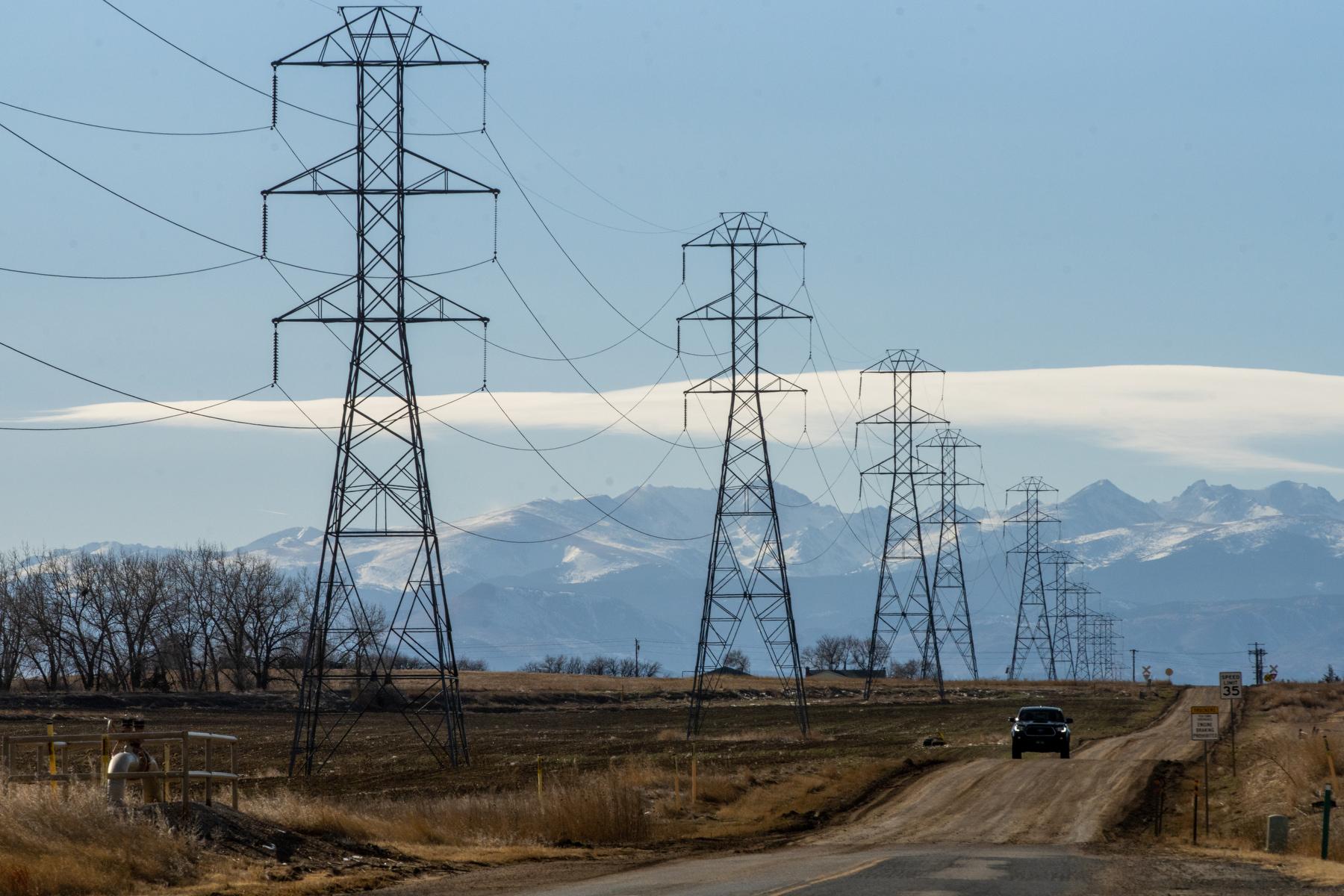
Xcel Energy submitted a formal request on Friday asking state utility regulators to approve around $356 million in prior expenses and investments, a move that is poised to raise average customer bills by nearly 10 percent next year.
The document, filed to Colorado’s Public Utilities Commission, is the company’s request to charge Coloradans for the services and investments it provided, and to budget future charges it may incur.
Over the last three years, Xcel has kept track of how much it’s spent on expenses like paying for wildfire liability insurance, building new substations, and upgrading the poles and wires that route power to homes.
The company has tallied those expenses along with additional interest and is now presenting them to regulators. Over the next year, regulators will decide which expenses can be paid back through customer bills and which expenses the company should cover with its own dollars.
The proposed rate hike is sure to generate intense debate between environmentalists, consumer advocates, municipalities and regulators, all of whom will be debating how much money Xcel should be making.
Xcel hasn’t requested a major price hike to its customer base rates since 2022. That request, though, generated significant pushback because of its impact on customer bills. State regulators ultimately scaled back the proposed rate increase.
Xcel Energy’s president in Colorado, Robert S. Kenney, said he expects this proposal to raise average residential customer bills by 9.9 percent. The increase will take effect by next summer at the earliest.
The rate hike does not include other increases which may hit customer bills over the next few years, like a newly-approved Wildfire Mitigation Plan. Still, Kenney said Friday’s proposal would keep Colorado energy bills below the national average.
"So even with those other components,” Kenney said, “we would expect that our bills will remain both below the national average and the Colorado average."
The proposal also aims to increase the number of customers enrolled in the company’s energy assistance programs, which include payment plans and money to help “weatherize” homes.
Kenney said the proposal would use $10 million in company dollars to make those programs more accessible and may double the number of customers enrolled in them.
The $356 million figure includes a 9.8 percent surcharge reserved for Xcel Energy and its shareholders. That amount, known as a “return on equity” in utility jargon, is how investor-owned, regulated utilities earn a profit and attract investment to build expensive infrastructure, like power plants.
In recent years, the “ROE” for utilities has generated intense debate, as some economists and former utility executives say an excessive return may be jacking up consumer bills.
Utilities argue they need a high return to keep investing in the myriad expenses that result from providing power. State utility regulators will set the ROE for Xcel’s expenses in this case.
“Investing in safety, resiliency, the ability for customers to add electric vehicles or to electrify their homes and businesses — that’s what’s being recovered through these investments,” Kenney said.
Kenney said the company has been able to reduce its planet-warming greenhouse gas emissions by 57 percent since 2018, when compared to 2005 pollution levels. He said those trends would continue — even though the Trump administration is slashing support for clean energy and propping up the coal industry.
Included in the rate hike is also some portion of a $49 million charge that Xcel paid for its “excess liability” insurance premiums in 2024.
The company uses that insurance to cover costs if its equipment sparks wildfires. The company told regulators last year it was poised to face soaring premiums in the future.
It was not immediately clear how much Xcel paid for its liability insurance in 2025, though Kenney said that costs were coming down.
In January, state regulators let the company keep that expense off its books. Xcel is now petitioning regulators to allow customers to foot the bill; customers have historically paid for Xcel’s insurance.
Not included in the rate hike is any money spent on Xcel’s Marshall Fire settlement. In September, the company settled claims with Boulder County residents, municipalities and insurance companies over its alleged role in the fire. It maintains that its equipment did not spark the blaze.








